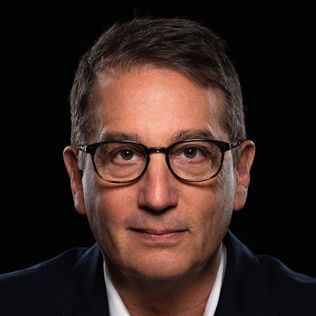Empower Your Dental Team for Less Stress, More Success
Jul 17, 2025Trust but Verify: Clinical Accountability
Do you empower your team to make decisions on your behalf, or do you ask every team member to check everything with you? Well, it depends on what we're doing. In surgery, we have an expression: "trust but verify."
When I ask for a 4x10 mm implant, I ask my assistant to get it. She looks at it, shows it to my other clinical assistant, and then I look at it. We always verify because we don’t want to make a mistake. If I’m walking into the operatory to extract tooth number 30, I check the chart, then ask my assistant, "What tooth are we taking out?" She replies, "Tooth 30." I confirm, and then ask the patient, if they're not sedated, "Your lower right first molar, right?" Sometimes patients look at me like I’m crazy and say, "You don’t know what you’re doing?" I tell them, "Yes, I do. But I always want to verify that we’re doing the right thing."
Balancing Trust in Human Relationships
In the realm of human relationships, it's a bit different. We have 25 employees in our office. Our phone must ring 500 times a day. Between the staff, we probably get around 2,000–3,000 emails daily. That’s a lot of information. Plus, we see about 100 patients a day with three hygienists and two doctors.
I can’t manage all of that. I have to trust my team. In "The Speed of Trust," Stephen Covey Jr. describes trust as the essential lubricant in any organization. It's what makes everything more effective and efficient.
Reducing Stress, Increasing Effectiveness
In every interaction, I evaluate two things: is it increasing or decreasing stress? And is it making us more or less effective? The ideal combination is low stress and high effectiveness—that's the flow state. It’s like when you're playing sports and everything's going smoothly. In dentistry, the flow state is when the procedure is going well, the bone is perfect, and the team is laughing. That’s where I want to be.
What I hate is high stress and low effectiveness. I don’t want that for myself or my team. If they can work in their flow state, doing the right thing because they know what the right thing is, they become powerful.
Real-World Example: Empowering Team Decisions
Say a patient comes in 15 minutes late, and the hygienist is running behind. What do we do? My team member will make the right decision. Maybe they say, "We can’t give you the full 30 minutes today, and we won’t charge you for the full visit because we want you back."
Even if the patient is technically wrong, the team member is empowered to handle it. The last thing I want is for someone to say, "You're late, go home," and waste the slot. Life happens—traffic, delays. In a practice with around 75 appointments daily, perfect timing doesn’t always happen. Flexibility is key.
Training for Long-Term Success
Empowering staff requires trust and empathy—for both patients and team members. I must first show them their responsibilities and educate them. We don’t throw new hires in unprepared. It takes three to four months just to get comfortable.
Even if someone came from another top-tier practice, they've never worked in ours. It's a different team, a different protocol. Just like LeBron James joining the Knicks wouldn't guarantee a championship overnight, it takes time.
I tell new hires: it’ll take a year to be minimally effective, five years to be good, and 10 years to be great. My partner, Dr. Ma, has been with me for 12 years. He’s phenomenal—but he didn’t start that way. Our newer associates see that and understand that greatness takes time and effort.
Leadership and Mentorship Matter
As leaders, mentors, and collaborators, it’s our job to help others become great. If you don’t empower your staff, you're undermining your own authority and effectiveness. Some people say, "I don’t like my staff." That’s a problem. If that’s the case, you’ve got to hire the right people and train them.
No one becomes great in a vacuum. You could hire the best, and they’ll fail without proper treatment and support. I believe in empowering and rehiring my staff every day. That means complimenting them, correcting when needed, and lifting them up publicly.
Final Thoughts: Be the Gift
I’m fortunate. I have 25 people in my practice, and I love every one of them. It wasn’t like that 30 years ago. I had to grow, hire better, and train better. If you're not there yet, find mentors to help you.
Be the gift, everybody. And have a great day.



